Risk, Nature, and Human Drama: How Ben Mezrich and Brian Brett Cover Life’s Big Themes
Ben Mezrich and Brian Brett may seem like two completely different writers. Mezrich is best known for telling thrilling stories about gambling and high-stakes ventures, while Brett, a Canadian poet and memoirist, writes about nature and personal experiences. However, both explore similar themes – risk, human drama, and life’s unpredictability – though they approach them from very different perspectives.
Who Is Ben Mezrich?
Ben Mezrich is a well-known writer who has made a name for himself by telling real-life stories about high-stakes gambling, the tech world, and risky ventures. His books, often based on true events, read like thrillers, keeping readers hooked from beginning to end. Mezrich’s fascination with risk goes beyond gambling. He’s interested in any situation where people put everything on the line.
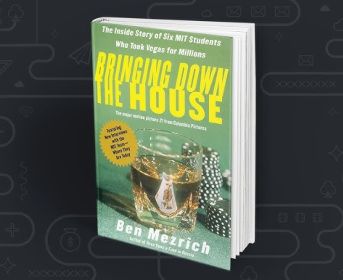
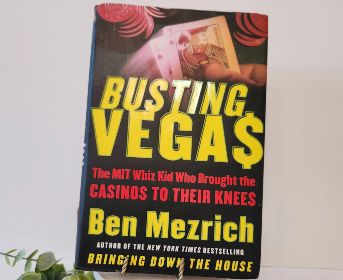
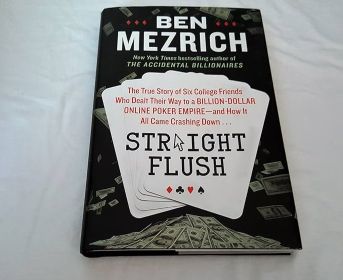
Key Works on Gambling
One of his most famous books, Bringing Down the House, tells the story of a group of MIT students who mastered card counting and used it to win millions at Las Vegas casinos. The thrill of risking it all is a central theme here, as these students take on the challenge of beating the system. The story was later turned into the hit movie 21.
In Busting Vegas, Mezrich revisits the world of blackjack, this time focusing on a different group of MIT students who employed even more advanced techniques to take down casinos. The risks were greater, and so were the consequences. This book, like many of Mezrich’s works, captures the excitement and danger of pushing boundaries.
Another notable book, Straight Flush, shifts from blackjack to the online poker world. Mezrich tells the story of the rise and fall of an online poker empire, showing how the tech world can be just as risky and high-stakes as gambling at a casino. Speaking of high stakes in the digital age, check out this pioneer’s sketchbook of real money frontiers with online casinos Canada. It offers a front-row seat to explore today’s virtual gaming scene – for a taste of how modern risk-takers are navigating their own thrilling adventures. Moreover, it’s a great way to find out about the 15 best online casinos in Canada, alongside insights into the 5 standout features of recommended casinos, types of bonuses, and top software providers for online casinos in Canada. From generous welcome offers to cutting-edge game design, these elements bring the same pulse-pounding excitement Mezrich’s characters chased, right to your screen. Here’s a quick breakdown of the daring escapades in these stories:
| Book Title | Setting | Risky Move | Big Payoff or Fallout |
|---|---|---|---|
| Bringing Down the House | Las Vegas Casinos | Card counting by MIT students | Millions won, chased by casinos |
| Busting Vegas | Las Vegas Casinos | Advanced blackjack strategies | Bigger wins, bigger crackdowns |
| Straight Flush | Online Poker Empire | Building a digital gambling kingdom | Rise to riches, then a legal crash |
Mezrich’s books are filled with gamblers, entrepreneurs, and risk-takers – people who make life-changing decisions while balancing on the edge of success or failure. His stories are a testament to the idea that life, in many ways, is a gamble.
Who Is Brian Brett?
Brian Brett is a very different kind of writer. He is known for his poetic reflections on nature, life, and personal experiences. His writing is much more reflective and slower-paced than Mezrich’s, but it’s just as powerful. Brett’s work often draws from his life on a small farm, where he explores the beauty, risks, and rewards of living close to nature.
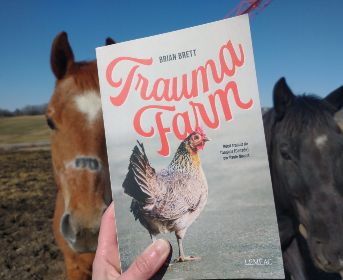
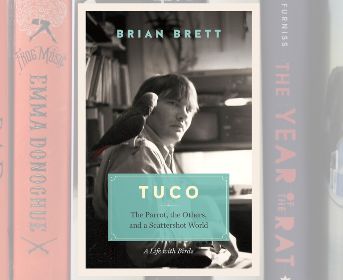
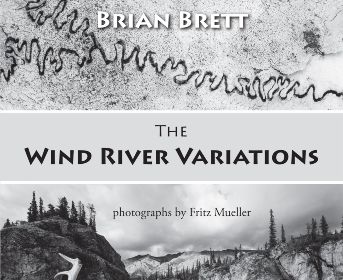
Key Works Focused on Nature
In Trauma Farm, Brett shares his personal story of life on the farm, filled with reflections on rural living’s hardships and joys. Farming, as Brett reveals, is full of risks – weather, crops, and animals all present challenges, and every day is a gamble in its own way. This memoir gives readers an intimate look at the daily struggles and triumphs of someone deeply connected to the land.
Tuco: The Parrot, the Others, and A Scattershot World also explores Brett’s personal connection to nature through the lens of his lifelong companionship with a parrot. In this memoir, Brett continues to weave reflections on life, animals, and human relationships with the natural world.
In Honey Song and Queen Bee Song, Brett turns his attention to bees, using them as metaphors for survival, fragility, and the interconnectedness of life. Just like humans, bees face constant challenges, yet they find ways to survive.
Brett’s works, including Wind River and Wind River Place, also explore his deep connection to the wilderness. He writes about the beauty and risks of nature, from unpredictable weather to encounters with wildlife. These themes run through many of his writings, including Pat Island and The Parrot, where he explores the wild, untamed aspects of life.
For Brett, risk is woven into the fabric of nature. Whether it’s the danger of farming, encounters with animals like the coyote in Coyote Renegade, or the unpredictable rhythms of the seasons, Brett’s writing reflects a deep connection to the wild world. His work on coyotes, particularly Coyote Renegade, has received reviews from writers such as Brian Fawcett, Alan Twigg, Pat Burkett, and David Homel, all of whom praise Brett’s exploration of the coyote as a symbol of survival and resilience in nature.
Brian Brett’s Poetry and Journalism
Brett’s poetry captures his thoughts on life, emotions, and nature. In books like No Riders in a Storm, I Want To Serve Food To Strangers, Night Directions for the Lost, The Qualities of Light, and Take Off Your Clothes, he explores vulnerability, human connections, and our place in the world. His poems often mix personal experiences with deeper ideas about survival and nature.
In addition to poetry, Brett is known for his journalism, contributing insightful columns to Yukon News that explore diverse topics. In pieces like Carlsbad, Malaprops, Aliens, and Wind River, Brett blends storytelling with sharp observations, often focusing on nature, human life, and the mysterious world around us. His column “Aliens” in Yukon News is a standout example of his ability to weave personal experiences with larger themes, keeping readers engaged with both wit and reflection.
Brett has been recognized for his contributions to literature, including winning the CBC Poetry Prize in 2015 and participating in events like the Sechelt Writers Festival. His writing, while quiet and introspective, carries the same sense of risk and human drama found in Mezrich’s more fast-paced works.
Both Mezrich and Brett focus on risk, but they approach it from very different angles. Mezrich’s stories are all about literal risks – gamblers betting everything, entrepreneurs navigating the cutthroat world of business. The stakes in his books are high, and the consequences are often life-changing.
Brett’s exploration of risk, on the other hand, is more personal and grounded in nature. He writes about the risks of farming, beekeeping, and living close to the land. In Trauma Farm, for example, Brett reflects on the uncertainty of rural life, where everything from the weather to the animals can be unpredictable. Brett’s risks are quieter, but they are no less significant.
Despite their different settings, both authors are interested in how people make decisions when facing uncertainty. In Mezrich’s books, the characters are often forced to make split-second decisions in high-pressure situations, while Brett’s characters, often inspired by his own life, reflect on the choices they make in the natural world.
City Gambling vs. Wilderness in Their Writing
One of the biggest contrasts between Mezrich and Brett is the settings they choose to explore. Mezrich’s stories take place in fast-paced, urban environments – casinos, big cities, and the tech world. In Bringing Down the House and Busting Vegas, he paints a picture of high-stakes gambling in Las Vegas, where fortunes are made or lost in a matter of seconds.
In Straight Flush, Mezrich moves into the world of online gambling, showing how technology has transformed the gambling landscape. The risks are just as high, but they are now digital.
In contrast, Brett’s writing is rooted in the wilderness. His memoir Trauma Farm takes readers to a small farm, where the risks are tied to nature – weather, animals, and the land itself. In Pat Island and Honey Be Song, Brett explores the beauty and unpredictability of the natural world, where survival often depends on understanding and respecting the environment.
While Mezrich’s characters navigate the risks of city life and gambling, Brett’s characters face the quieter but no less dangerous challenges of the natural world. Both authors explore resilience, whether it’s in the hustle of a casino or the calm of a farm.
Different Styles, Different Themes
Mezrich’s and Brett’s writing styles couldn’t be more different. Mezrich writes with energy and speed, pulling readers into a world of action and suspense. His stories are filled with fast-paced dialogue, high stakes, and quick decisions.
Brett, on the other hand, takes a slower, more reflective approach. His writing is lyrical and poetic, inviting readers to think deeply about life, nature, and the choices we make. In works like Honey Final Song and Wind River, Brett reflects on life’s fragility, the passage of time, and the beauty of the natural world.
While Mezrich writes about gambling, risk-taking, and business, Brett focuses on nature, survival, and personal reflection. Their topics are different, but both authors are exploring the same big questions: How do we face uncertainty? What choices do we make when we don’t know what’s coming next?
At first glance, Ben Mezrich and Brian Brett might seem like two completely different writers. Mezrich’s stories of gambling and high-stakes business ventures contrast sharply with Brett’s reflections on nature and rural life. Yet, both authors share a deep interest in risk, human drama, and life’s unpredictability. Whether exploring the fast-paced world of casinos or the quiet solitude of a farm, Mezrich and Brett remind us that risk is a part of life. How we face those risks defines who we are, and their works offer readers valuable insights into the many forms that risk can take.